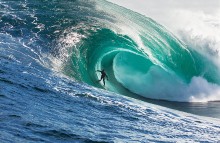 Here is some powerful writing from Theresa, who started blogging about her recovery on our online community Wired In To Recovery in May, 2010. Here are her first two posts:
Here is some powerful writing from Theresa, who started blogging about her recovery on our online community Wired In To Recovery in May, 2010. Here are her first two posts:
‘Me (6th May, 2010)
I am 17 weeks, today, into Recovery from alcohol addiction. I have found that getting into Recovery is the hardest thing I have ever done in my life. It is also the thing I am most proud of because of the unbelievable physical and mental effort it has taken to get this far.
The fear of withdrawal and the absolute belief that I would be unable to cope without drink made me believe for a very long time, that a drunken haze would be my life until I became so distraught and heartbroken that I ended it (which I almost did) or my body just gave up the fight.
But now? Now I have something I never thought could exist in a hopeless wreck like me, and that is hope. I. Me. Theresa. Is in Recovery and has been sober for over four months! Well slap my thigh and call me Norman!!! Haha! I am dry!

 What a day for a very special man here in Canning Vale, Perth, Western Australia. My good friend Michael Scott is celebrating his 45th Recovery Birthday. A wonderful achievement! Congratulations, Michael. I remember vividly Michael’s description of his last drink, written ten years ago in his Recovery Story
What a day for a very special man here in Canning Vale, Perth, Western Australia. My good friend Michael Scott is celebrating his 45th Recovery Birthday. A wonderful achievement! Congratulations, Michael. I remember vividly Michael’s description of his last drink, written ten years ago in his Recovery Story  What’s it like when you reach that point when you say, “Enough is enough, I have to change.” And you do change! The moment of clarity that triggers the journey to recovery. Here’s what my close friend Adam had to say in his Recovery Story.
What’s it like when you reach that point when you say, “Enough is enough, I have to change.” And you do change! The moment of clarity that triggers the journey to recovery. Here’s what my close friend Adam had to say in his Recovery Story. When I first met Natalie back in 2000, I didn’t realise that she would play a role in my decision to change career from neuroscientist to addiction recovery advocate, researcher and educator. Her words also contributed to my decision to write a collection of Recovery Stories. Thank you, Natalie. (1,730 words)
When I first met Natalie back in 2000, I didn’t realise that she would play a role in my decision to change career from neuroscientist to addiction recovery advocate, researcher and educator. Her words also contributed to my decision to write a collection of Recovery Stories. Thank you, Natalie. (1,730 words) Ellie’s Recovery Story is from the excellent
Ellie’s Recovery Story is from the excellent  The Recovery Stories on this website were written in 2012, ready for our launch in 2013. Some of these Stories were written by the person, whilst others I wrote after interviewing the person (or people) on a number of occasions. In these latter cases, the stories went back and forth across the world, as most involved people lived in the UK and I had moved to Australia.
The Recovery Stories on this website were written in 2012, ready for our launch in 2013. Some of these Stories were written by the person, whilst others I wrote after interviewing the person (or people) on a number of occasions. In these latter cases, the stories went back and forth across the world, as most involved people lived in the UK and I had moved to Australia.
